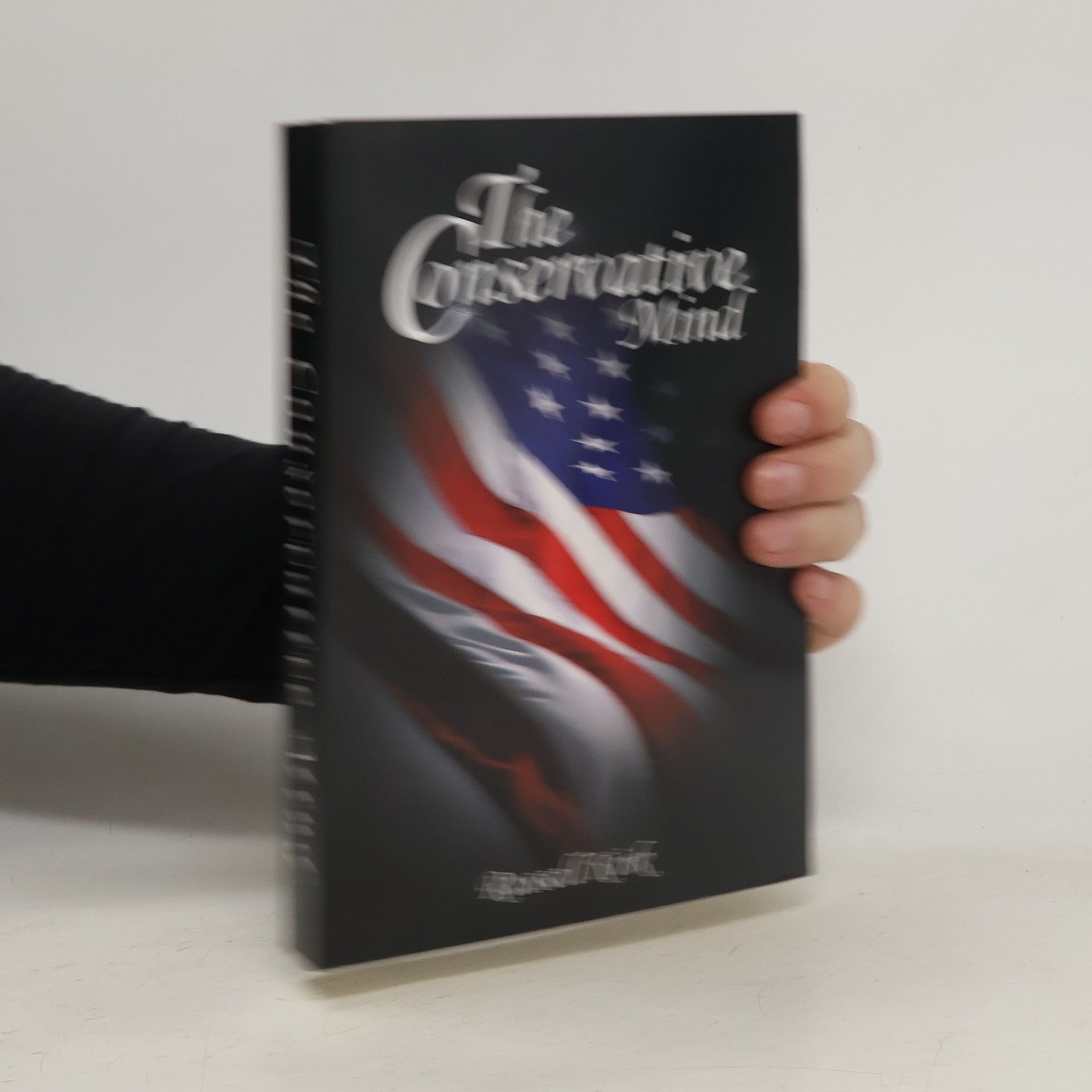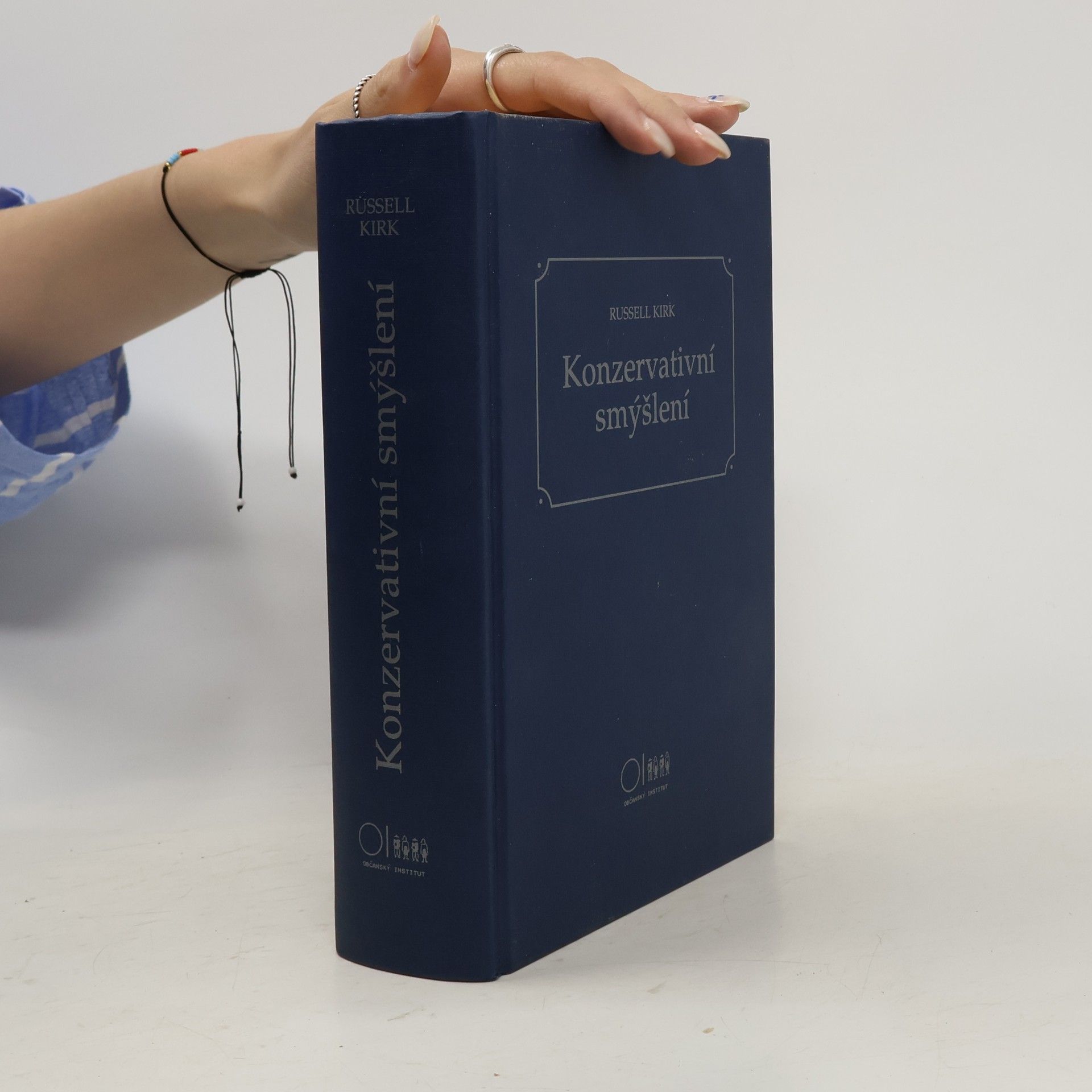Konzervativní smýšlení
- 633 stránok
- 23 hodin čítania
Obšírný exkurs do dějin idejí. Konservativní smýšlení popisuje intelektuální rozpoložení či charakterový typ, který v otázkách lidského údělu a existence miluje věci trvalé a pečuje o ně.
Russell Kirk patril medzi najvplyvnejších intelektuálov svojej doby, pričom jeho tvorba formovala moderné konzervatívne myslenie. Jeho diela sa venujú širokej škále tém, od politickej filozofie a vzdelávania až po literárnu kritiku a etiku. Kirkov štýl sa vyznačuje hlbokým porozumením tradícií a precíznou analýzou kultúrnych a spoločenských javov. Jeho eseje a knihy naďalej rezonujú u čitateľov hľadajúcich prenikavý pohľad na trvalé hodnoty a súčasné výzvy.






Obšírný exkurs do dějin idejí. Konservativní smýšlení popisuje intelektuální rozpoložení či charakterový typ, který v otázkách lidského údělu a existence miluje věci trvalé a pečuje o ně.
Focusing on the evolution of conservative thought, this influential work explores the principles and values that define American conservatism. Kirk delves into the ideas of key conservative thinkers, highlighting their impact on modern political philosophy. The book emphasizes tradition, moral order, and the importance of community, making a compelling case for the relevance of conservatism in contemporary society. Through a historical lens, it offers insights into the ideological battles that have shaped American political discourse.
Exploring the foundations of American Conservatism, this influential work delves into the philosophical underpinnings and historical development of conservative thought. Kirk presents a comprehensive analysis of key conservative figures and ideas, emphasizing tradition, morality, and the importance of community. The book serves as both a critique of liberalism and a call to uphold conservative values in the face of modern challenges, making it a pivotal text for understanding the evolution of political thought in the twentieth century.
When Grale is tasked with investigating a series of coordinated bombings in LA, he's forced to leave his vulnerable niece alone in Vegas. But when she disappears, things become explosively personal.
2015 Reprint of 1953 Edition. Full Facsimile of the original edition. Not reproduced with Optical Recognition Software. In attempting to clarify the spirit of conservatism, Kirk turns his attention to three broad fields-political philosophy, religious thought, and imaginative literature. Following Burke, whom he calls the first truly modern conservative thinker, he studies the work of John Adams, Walter Scott, Calhoun, Fenimore Cooper, Tocqueville, Nathaniel Hawthorne, Benjamin Disraeli, Cardinal Newman, George Santayana, and T.S. Eliot and others. Vigorously written, the book represents conservatism as an ideology born of sound intellectual traditions.
While in Las Vegas on his way to a family Fourth of July celebration, FBI bomb expert Paul Grale hears a deep blast and sees the smoke rising. In an unfolding nightmare, Grale discovers his sister, brother-in-law, and many friends were caught up in the explosion. Grief stricken, he is pulled from the main bomb investigation to sift orphan leads. Quietly he begins a relentless search for the bomb maker. When the FBI suspects his friend and disgruntled former drone pilot for the blast, Grale thinks they're getting it all wrong. Propelled by deep personal loss and an intense need to do the right thing, he picks his way through the smallest of leads and into a maze of twists, turns, and sudden dead ends. When he uncovers another threat, time is already quickly running out. With the lives of so many at stake, Grale won't let himself fail--and he won't rest until there's justice for his family. Adrenalized, gripping, and all too timely, Signature Wounds brings terror to Vegas and introduces FBI special agent and bomb tech Paul Grale, a man whose specialized skill and fierce determination are a lethal combination.
Jedno z najważniejszych dzieł Russella Kirka, klasyka myśli konserwatywnej, ukazuje fundamenty i ewolucję cywilizacji zachodniej, szczególnie w jej anglosaskim nurcie. Kirk bada dylematy polityki, duchowości i kultury, które od starożytności po XIX wiek były przedmiotem intensywnych sporów ideowych i religijnych oraz zaciętych walk politycznych. Te zmagania doprowadziły do wytworzenia wartościowych obyczajów, reguł i praw, które zasługują na ochronę. Jego prace są szczególnie aktualne w czasach, gdy tradycyjne porządki są atakowane, a ich obrońcy marginalizowani. Słowo porządek najlepiej zrozumieć, analizując jego przeciwieństwo – brak porządku, który prowadzi do chaosu i nieszczęścia. Społeczeństwo dotknięte brakiem porządku naraża swoich członków na zagrożenie. Bez duchowego porządku zewnętrzny ład wspólnoty nie przetrwa. Brak porządku w duszach prowadzi do nienormalności i utraty kontroli nad instynktami. Wspólnota bez porządku popada w anarchię, gdzie każdy staje się wrogiem każdego. Richard Hooker zauważył, że w społeczeństwie publicznym nie ma życia bez porządku, ponieważ jego brak rodzi dezorientację. Ten zbawczy porządek jest wynikiem ponad trzech tysięcy lat ludzkich wysiłków.